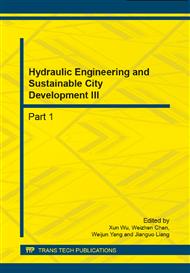p.727
p.731
p.736
p.741
p.745
p.753
p.757
p.763
p.767
A Method for Predicting Probabilistic Resource Conflicts between Trains
Abstract:
The development of high-speed railway construction and operation greatly shorten people's travel time, however, the demand of people on travel time reliability becomes more and more prominent, so train dispatching plans are becoming more and more important. This paper defines probabilistic conflicts between trains, analyses probabilistic conflict influence factors and comes up with a method for predicting probabilistic resource conflicts between trains. The method aims to improve the accuracy of train conflict prediction, provide more reliable basis to solve train conflicts and develop more efficient train dispatching plans.
Info:
Periodical:
Pages:
745-752
Citation:
Online since:
September 2014
Authors:
Price:
Сopyright:
© 2014 Trans Tech Publications Ltd. All Rights Reserved
Share:
Citation:


